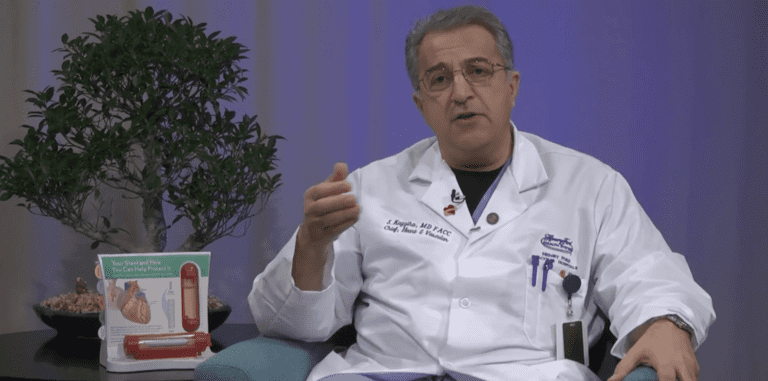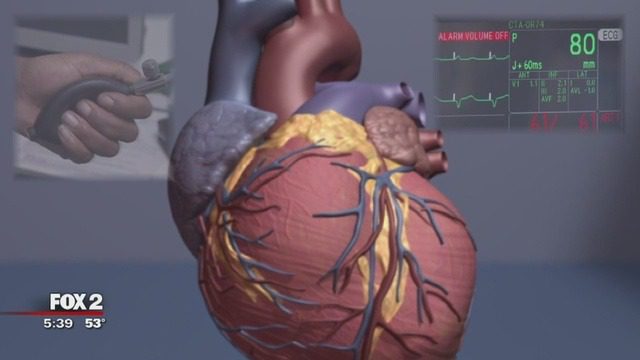This is an article that was published on February 15th, 2012 by Krystle Anderson
KRYSTLE ANDERSON Published 12:00 am EST, Wednesday, February 15, 2012
To her good fortune, a neighbor witnessed her collapse and called 9-1-1.
Kelly Remick, a 44-year-old mother of two, had been in good health and regularly jogging.
Heart disease was the furthest thing from her mind, but it almost took her life.
Remick recently decided to go for a run on a trail near her home.
But during the run, she suddenly collapsed.
Remick was able to tell emergency workers that she was experiencing back pain and shortness of breath before becoming unconscious.
This allowed emergency workers to administer Advance Cardiac Life Support, or ACLS, which continued upon her arrival to the emergency room at Crittenton Hospital Medical Center.
At the hospital, Remick was intubated and placed on a breathing machine by Dr. Catherine Loniewski. The Cath Lab team was then notified, and Dr. Frank Kazziha ordered a series of critical tests.
Fluid was found around Remick’s heart, the fluid contained blood, which is an indicator of something more serious.
She was suffering from an aortic dissection or tearing of the heart.
Remick was rushed into surgery, where doctors Alvise Bernabei and Frank Fazzalari worked to save her life.
Cardiovascular interventionalist Dr. Samer Kazziha, executive medical director of cardiovascular services at Crittenton hospital and associate professor at Wayne State University School of Medicine, warns of the risk factors of heart disease.
“There are risk factors which we can modify and there are risk factors which we cannot.
“The ones we cannot modify are gender, for instance, men more frequently then women have heart disease at a younger age. Aging, we cannot modify that, as we get older we have a high potential of developing cardiovascular disease,” Kazziha said.
Race, and family history also are non-preventable risk factors of heart disease. It is important to know your family history, he said.
“The modifiable risk factors which we need to be aware of are high blood pressure, and people have to have their blood pressure checked at least twice a year, even when they’re young, to make sure that it is not elevated.”
Kazziha also said blood sugar, diabetes, smoking, high cholesterol and a sedentary lifestyle are modifiable risk factors for heart disease.
According to Dr. Kazziha, People can help to reduce their risk of cardiovascular diseases by exercising more, even something as simple as walking could reduce your risk of heart attack or stroke.
No smoking, watching your diet, and knowing your family history or all things that could help prevent and or recover for a heart related illness.
Crittenton offers a series of free cardiovascular lectures in Rochester, Clarkston, Rochester Hills and Sterling Heights.
Visit www.careforyourheart.com.




